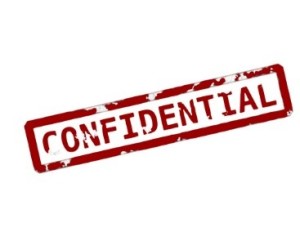Medical records are protected both by the Health insurance Portability and Accountability Act (HIPAA) and employment agreements that typically mandate that patient records be kept confidential. Although the purpose of these agreements and HIPAA is to protect patients, some healthcare providers have been using them as a shield against False Claims Act claims.
Enacted during the U.S. Civil War, the False Claims Act remains the Justice Department’s number one weapon against Medicare and Medicaid fraud. Healthcare workers with inside knowledge of fraud involving Medicaid, Medicare or TriCare can receive large cash awards for reporting wrongdoers. Awards are typically 15% to 30% of whatever the government collects. Million dollar awards are not uncommon.
Some providers attempt to intimidate their staff from reporting violations. Workers are told they can be fired for revealing confidential patient information. There can even be criminal penalties in certain cases.
Recently Mount Sinai Hospital in New York City attempted to dismiss a Medicare fraud suit by claiming the two whistleblowers who filed the action relied on “improperly obtained confidential patient records as the basis for their complaint.” The whistleblowers are both employees of the hospital system.
The court ruled that it did not need to address how the whistleblowers obtained the records. Instead, the court ruled the False Claims Act incorporates a “strong public policy in favor of protecting those who report fraud against the government.”
The court also noted that HIPAA rules contain an exception that allows “’whistleblowers’ to reveal such information to governmental authorities and private counsel, provided that they have a good faith belief their employer engaged in unlawful conduct” (45 C.P.R. 164.502(j)).
Medicare fraud is a national epidemic that costs taxpayers tens of billions of dollars per year. Now more than ever we need more concerned healthcare workers to stand up and become whistleblowers. It is troubling that instead of simply defending itself on the merits of the claims, Mt. Sinai instead spends much time focussed on how the workers obtained the documents.
Medicare fraud is a crime. It hurts patients, taxpayers and our economy. Criminals should not be permitted to hide behind procedural rules to avoid responsibility for their actions.
The False Claims Act case against Mt. Sinai is far from over. The court’s ruling this week only means that the case can go forward. There have been no findings of wrongdoing yet; it is still too early in the proceedings.
Workers that have evidence of Medicare fraud should consult with an experienced whistleblower lawyer as soon as possible. Before you take medical records or copy patient files, speak with counsel first. As noted in this case, most courts are reluctant to punish whistleblowers that have a good faith belief that a fraud has occurred.
To learn more about becoming a whistleblower, give us a call. Our whistleblower clients have recovered over $100 million in False Claims Act award monies. We are glad to help you evaluate whether or not you have a viable case. For more information, contact attorney Brian Mahany at or by telephone at (direct).
All inquiries protected by the attorney – client privilege and kept strictly confidential.
MahanyLaw – America’s Medicare Fraud Lawyers
(Need more information about the False Claims Act and Medicare fraud? We have dozens of articles on our blog, all text searchable. You may also wish to begin by visiting our Medicare fraud cornerstone page here.)


